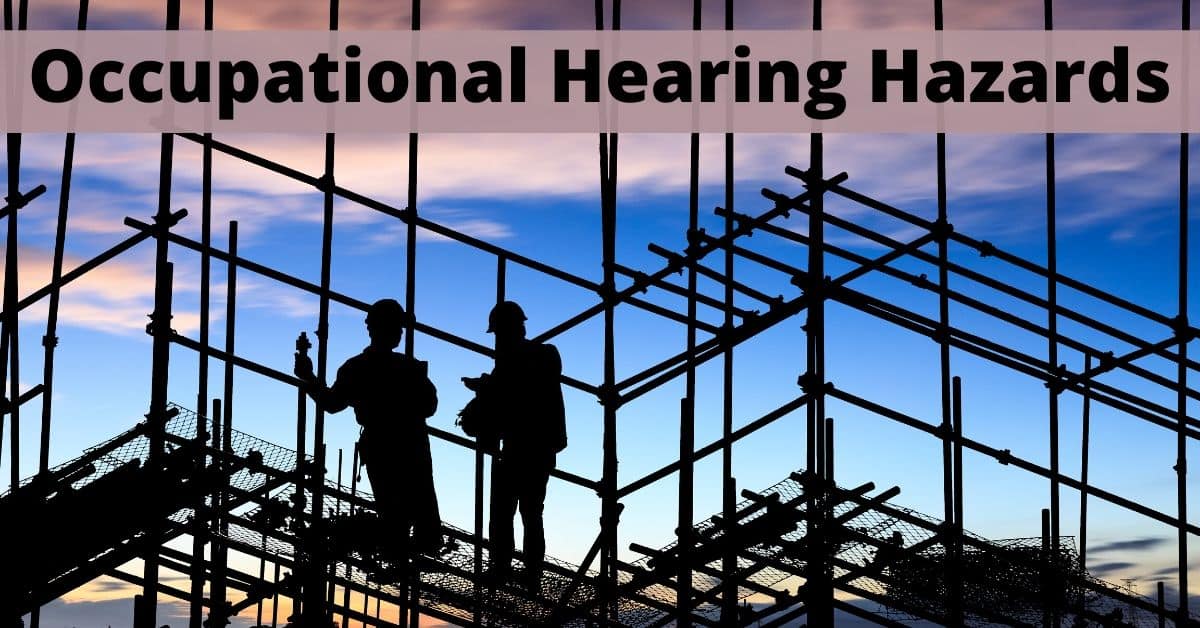Many of us frequently equate hearing loss with aging, and it’s true that a person is more likely to show signs of hearing loss later in life. But another type of hearing loss affects people across all age groups, and this one is entirely avoidable: noise-induced hearing loss (NIHL).
Hearing loss is commonly under-reported and undertreated, and many individuals may not even be aware that they have this hearing loss.
A wide variety of loud noises, especially over an extended period, can be hazardous to human hearing. Let’s look at some facts about hearing loss and noise, and what you can do to protect your hearing.
Noise and the workplace
According to the Occupational Safety and Health Administration (OSHA), about 30 million people are exposed to dangerous noise at work. They note that noise-related hearing loss is “one of the most prevalent occupational health concerns in the US for over 25 years … thousands of workers have preventable hearing loss due to high levels of noise in the workplace.”
Hearing specialists believe that noise higher than 85 decibels ( dB) can damage the hearing if the individual is exposed to them for long enough. The louder the sounds, or the higher the exposure, the greater the risk to your hearing.
Here are some familiar sounds and their decibel equivalent: Average conversations measure around 60 dB, whereas rock concerts average about 120 dB. Gunshots go from 140 to 190 dB, while power tools range from 110 to 130 dB. Sports fans are also exposed to high noises, as sports stadiums tend to clock in between 120 and 140 dB.
The critical thing to remember is that the damage is exponential – the risk of loss climbs sharply with each increase in decibel. So while you can endure eight hours of a sound at 90dB, the length of permitted exposure halves with each 5dB increase in sound. This means you can only enjoy a rock concert for seven minutes before hearing damage occurs! That’s only about two songs.
Noise-induced hearing loss is permanent, meaning there’s no way to cure it via medical means. Long-term exposure to harmful levels of sound not only causes hearing loss but also stress, decreases productivity, and can also lead to accidents and injuries in the workplace.
The process of hearing damage
The hair cells of the inner ear are harmed when sounds are too loud. Such cells are responsible for converting sound wave impulses into sound signals, which are then sent to the brain to be interpreted as sound. The damage to these cells from loud noises is irreparable because science has not yet come up with a way to regenerate these delicate cells.
How employers and employees can reduce the risk
Since this hearing loss is irreversible, prevention is better than the cure; it is the only cure.
OSHA guidelines recommend minimizing noise levels in the workplace and encourage employers to take steps to protect hearing among workers.
The first thing to do is enact engineering controls, such as
- Substituting quieter machinery for heavy equipment
- updating or replacing old machinery
- installing sound barriers.
Administrative measures can also protect hearing by minimizing workers ‘ exposure to noise. These measures could come in the form of:
- restricting the amount of time spent with noisy equipment,
- lengthening the distance between staff and equipment
- setting schedules to reduce noise exposure
- providing quiet areas for lunch breaks to give the ears a chance to relax
Employers are required by law to provide earplugs for anyone who works in sufficiently noisy environments, but if you’re already being exposed to dangerous sound, don’t wait around. Protect your hearing today by wearing protection such as earplugs or earmuffs to prevent exposure to occupational noise hazards.
Acknowledging and treating hearing loss
Although researchers are working on treatments that could one day restore hearing loss, such approaches are unlikely to arrive soon enough for the millions of Americans currently in need.
Whether you’re having trouble processing what other people are saying, or it sounds like others are mumbling, it may be time for a hearing specialist to test your hearing.
Please contact us if you are concerned about your hearing. We perform comprehensive hearing tests and fittings for hearing aids, and our team is ready to help you on the way to better hearing!

